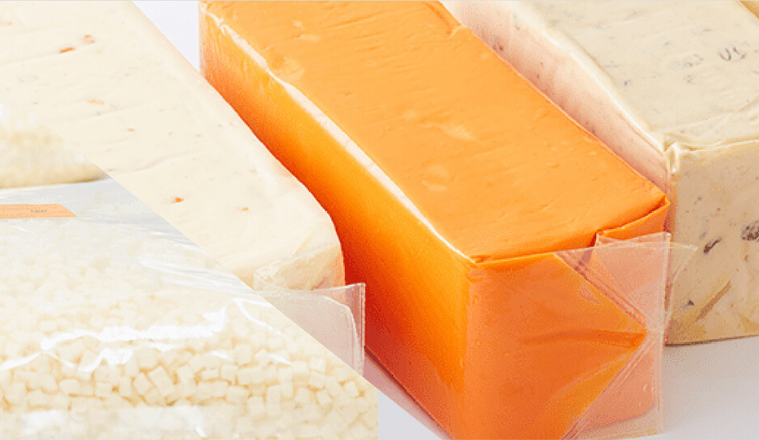Cheese Makers Melbourne: Crafting optimum Cheeses Locally
Cheese Makers Melbourne: Crafting optimum Cheeses Locally
Blog Article
Understanding the Science Behind Cheese Manufacturing: From Milk Selection to Last Item
The complex process of cheese manufacturing starts with the careful option of milk, an option that profoundly impacts the final item's flavor and texture. Comprehending the critical function of microorganisms in fermentation discloses just how these microbes change lactose into lactic acid, a vital component in creating the cheese's character. cheese shop melbourne.
Milk Option Process
The selection of milk is an important action in the cheese manufacturing process, as it directly influences the taste, texture, and top quality of the last product. Numerous factors should be considered during this selection, consisting of the source of the milk, the breed of the pets, and their diet. Cow's milk, goat's milk, and lamb's milk each possess distinctive homes that add to the one-of-a-kind qualities of different cheese ranges.

In addition, the dietary material of the milk, influenced by the animal's diet, can change the cheese's final qualities. High-quality milk, sourced from healthy animals, makes sure an exceptional cheese product, highlighting the value of rigid quality assurance procedures in the milk selection procedure. Hence, cautious factor to consider in milk option is important for effective cheese production.

Duty of Microorganisms in Fermentation
Complying with the careful choice of milk, the fermentation process plays a pivotal duty in cheese production, where microorganisms are introduced to transform the milk right into cheese. The primary feature of these bacteria is to convert lactose, the sugar existing in milk, into lactic acid. This acidification not only changes the pH of the milk however likewise plays an important function in flavor development, texture, and preservation of the end product.
Lactic acid bacteria (LABORATORY), such as Lactococcus and Streptococcus species, are frequently made use of in cheese manufacturing due to their ability to flourish in milk and their contribution to the fermentation procedure. The metabolic activities of these germs lead to the manufacturing of different metabolites, including flavor substances and antimicrobial substances, which prevent spoilage microorganisms and pathogenic germs, thus enhancing cheese safety and security.
Additionally, the fermentation process affects the general attributes of celebrity, including its aroma, taste, and appearance. Various stress of bacteria can impart distinctive tastes and contribute to the one-of-a-kind accounts of different cheese kinds. Hence, the choice of bacterial cultures is a crucial action in accomplishing the desired cheese quality and consistency.
Coagulation and Curd Development
In the cheese production procedure, coagulation marks a critical transition from fluid milk to solid curds. This procedure is commonly enhanced by the acidic setting created by lactic acid germs, which additionally help in coagulation by decreasing the pH of the milk.
The resulting curds are developed as the liquid whey begins to separate. Aspects such as temperature level, the quantity of rennet utilized, and the time permitted for coagulation are crucial in identifying the texture and top quality of the curds. Greater temperatures and longer coagulation times usually yield stronger curds, ideal for harder cheeses.
Once curds are developed, they are reduced into smaller sized pieces, permitting whey to get away more efficiently. This action is critical, as it influences the moisture material and total features of the final cheese item. Proper administration of coagulation and curd development is important for attaining details cheese designs and preferred flavor accounts.
Aging and Flavor Growth
After the curd has actually been formed and whey has been drained pipes, the following stage in cheese manufacturing is maturing, also called maturation. This crucial procedure dramatically affects celebrity's last flavor, appearance, and scent. Throughout aging, different biochemical and microbiological transformations take place, influencing the total sensory profile.
The aging atmosphere, including temperature and humidity, plays an essential role in taste advancement. Enzymes and bacteria present in celebrity promote the break down of proteins and fats into smaller particles, leading to the development of amino acids, fats, and unpredictable substances. These improvements add to the intricacy of flavor and fragrance, with distinctive profiles arising based on the details cheese variety.
In addition, the period of aging is crucial; shorter aging periods commonly yield milder flavors, while longer maturation cause more robust and nuanced profiles. Aspects such as the milk resource, cheese type, and particular aging strategies further enhance the diversity of tastes created. Inevitably, aging is a fragile equilibrium of time, environmental problems, and microbial task, finishing in the one-of-a-kind features that specify each cheese selection.
Quality Assurance in Cheese Production
Guaranteeing high requirements throughout celebrity manufacturing process is important for providing a quality item that satisfies customer assumptions - cheese makers melbourne. Quality control (QC) incorporates various stages, beginning with raw milk selection to the final aging process. Each phase calls for precise attention to information to stop contamination and make certain uniformity
During milk choice, manufacturers need to evaluate elements such as fat material, pH degrees, and microbial high quality. Regular testing for somatic cell matters and bacterial loads is essential to make certain the milk's viability for cheese making. In the production stage, QC procedures include monitoring the temperature level, level of acidity, and rennet activity, which considerably influence appearance and flavor.
As cheese matures, continual sensory analyses and laboratory analyses are performed to assess taste development, appearance, and overall quality. Any type of variances from established cheese for sale online criteria demand rehabilitative activities to preserve item stability.
Additionally, documents and traceability are essential elements of effective top quality control, enabling manufacturers to track celebrity from farm to customer. By executing durable QC procedures, cheese producers can not just boost item high quality yet likewise build customer depend on, ensuring their location in an open market.

Conclusion
Finally, the science of cheese manufacturing encompasses several critical points, each considerably impacting the end product. The careful selection of milk, the important role of germs in fermentation, the makeover of liquid milk into curds with coagulation, and the aging procedure collectively add to the growth of unique tastes and appearances. Rigid quality control measures ensure that each cheese variety meets established standards, thereby enhancing customer complete satisfaction and keeping the honesty of the cheese-making practice.
Report this page